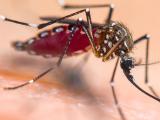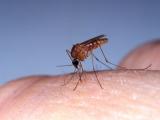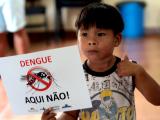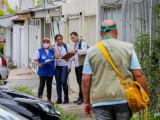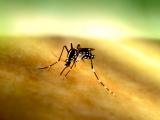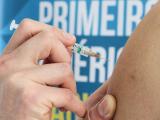Jul 14, 2010
Emergent wins HHS contract to expand anthrax vaccine production
Emergent BioSolutions announced today it has won a federal contract worth up to $107 million to support a major increase in production capacity for Biothrax, the only US-licensed anthrax vaccine. The contract is intended to help the company to increase capacity at its Lansing, Mich., facility to 26 million doses per year from the current 7 million to 8 million and to obtain regulatory approval for the expansion, the company said. The contract was awarded by the Biomedical Advanced Research and Development Authority (BARDA), part of the Department of Health and Human Services (HHS). Biothrax is used by the US military and is being stockpiled for potential civilian use in case of a bioterrorist attack. In a BARDA press release, BARDA Director Robin Robinson stated, "The current requirement is to have vaccine available for 25 million people—enough for the largest US cities—in the event of an anthrax incident. This contract will help achieve this goal by building domestic manufacturing capacity for this product." Emergent officials said the base contract is a 2-year agreement worth $54.6 million, and the pact includes options for another 3 years of work, bringing the total to $107 million. "The contract will fund activities related to process validation, assay validation, fill/finish, and if required, non-clinical and clinical studies," the company said. Since 1998 the government has bought more than 42 million doses of the vaccine, of which 9.6 million have been administered to nearly 2.4 million military personnel, the firm said.
Jul 14 Emergent BioSolutions press release
Monkeys in Japanese lab dying of mysterious hemorrhagic illness
A mysterious hemorrhagic illness has been killing monkeys at a major primate research center in Japan for years, but the laboratory did not report the problem until recently because it feared causing panic, according to recent reports. The first outbreak at Kyoto University's Primate Research Institute occurred in 2001 and 2002, sickening 7 Japanese macaques and killing 6 of them, according to a Jul 13 report in Nature. Another 39 cases in the same species occurred between March 2008 and April 2010, killing 25 and prompting euthanization of 13 more. Following the use of disinfectants and the isolation of sick monkeys, just one case per month was reported in May and June, the story said. According to Nature, the institute published a report on the cases Jul 1 in a Japanese-language journal. It said tests for 6 bacteria and 16 viruses found no explanation for the illnesses, which involved anorexia, lethargy, pallor, and nasal hemorrhaging. A translated press release from the institute, posted by ProMED-mail, provides further details on the illness and says that no humans at the facility have been affected. It also says that no cases have been reported in wild monkeys. Tetsuro Matsuzawa, director of the institute, told Nature that no other species at the lab have been sick. Institute officials have not revealed which pathogens were tested for.
Jul 13 Nature report
Latin America's surge in dengue cases continues
Several Latin American countries have continued to see a sharp increase in dengue fever cases in recent months compared with last year, according to press reports compiled by ProMED-mail, the disease reporting service of the International Society for Infectious Diseases. A report from Honduras described the disease as "rampant," with 14,609 cases of dengue fever and 515 cases of dengue hemorrhagic fever (DHF) recorded as of Jun 28. The country has had 16 deaths this year, 4 more than in all of 2009. In the Dominican Republic, the president of the nation's College of Physicians urged the declaration of a state of emergency in the face of "overwhelming" numbers of cases. The country's public health director said there were 4,591 dengue cases and 536 DHF cases as of Jul 11. In Venezuela, official reports showed 48,581 dengue cases for the year as of Jun 19, signaling an 82% increase. And Puerto Rico's top health official warned last week that the island could face a record-breaking epidemic if people didn't act quickly to eliminate breeding sites for mosquitoes that carry the dengue virus.
